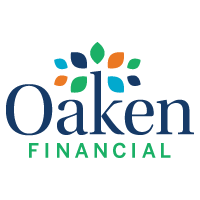10 SMART financial goals to set for 2025

Presented By
National Bank of Canada
Here’s how to make money resolutions that will set you up for success in the new year. Plus, examples of financial goals to help you brainstorm.
Advertisement

Presented By
National Bank of Canada
Here’s how to make money resolutions that will set you up for success in the new year. Plus, examples of financial goals to help you brainstorm.

It’s that time of year again—when we set our New Year’s Resolutions for 2025. If you’re like me and your bank account is down a bit from gift-giving during the holidays, it might be a good time to think about how you can give back to yourself financially. Here are 10 SMART financial goals to consider this year. Plus, a brief overview of the SMART system and examples of how to set financial goals.
You might be familiar with SMART goal setting from high school, or that go-getter friend who can’t wait to get their planner out on January 1.
When using the SMART goal-setting method, use the following criteria:
Of course, once you determine your SMART financial goals, make sure they’re visible or at least accessible to you, like on a vision board or in a notebook on your desk. It might even be helpful to break down what you will do in the next few weeks to start your progress—like opening a new high-interest savings account and transferring $200 into it when you get paid, for example.

Now that you know how to set effective money goals, here are 10 examples of SMART financial goals you can consider setting for the new year.
Building an emergency fund is a great medium-term financial goal. This is ideal for giving yourself peace of mind and some breathing room if you lose your job, have a dry spell between freelance clients if you’re self-employed, your car breaks down, you have to move suddenly or any other time you need cash fast. Think of it as a way to avoid taking out a loan or other forms of debt like credit card debt.
Aim to build the fund by saving a bit at a time. Start slowly, especially if you are also paying down any debt. A good goal would be to aim to cover three to six months of expenses. Maybe start out by saving enough to cover yourself for one month and grow from there.
You want the money to be quickly accessible for emergencies, which is why high-interest savings accounts and cash-holding tax-free savings accounts (TFSAs) are popular for these types of savings, over other investment types like guaranteed investment certificates (GICs), which can lock your money in for a period of time. (Note: there are redeemable/cashable GICs available in Canada).

Get up to 3.00% interest on your savings without any fees.

Lock in your deposit and earn a guaranteed interest rate of 3.40%.

Earn 4.50% for 5 months on eligible deposits up to $500k. Offer ends January 31, 2026
MoneySense is an award-winning magazine, helping Canadians navigate money matters since 1999. Our editorial team of trained journalists works closely with leading personal finance experts in Canada. To help you find the best financial products, we compare the offerings from over 12 major institutions, including banks, credit unions and card issuers. Learn more about our advertising and trusted partners.
Also known as a “sinking fund,” a fun fund is where you put some of your income towards big purchases like travel. This can be one of the best short-term savings strategies for discretionary expenses, and it’s way better than putting it on a credit card which can take months to pay off and will cost more in the end because of interest.
Be intentional about your savings, as it’s easy to “treat yourself” and unknowingly spend more on everyday expenses, like takeout or clothing. Read more about how to pay yourself first.
For example, I currently use a high-interest savings account with an interest rate offer that allowed me to set money aside for a recent visit to the spa. I’m now saving for any future vacations, too.
There are reputable free financial courses available that cover the basics of saving, investing and taxes for Canadians, and some even go into niche topics in more depth. Having more knowledge of financial products and services can help you shape your own financial future.
You could also pay for a course, with the option to keep some of the materials yourself, access chat rooms for motivation from like-minded learners, or even get one-on-one coaching. The New School of Finance has several courses designed by Certified Financial Planner Shannon Lee Simmons.
Before registering for any course, check the credentials of the instructors, and make sure that the content is geared to Canadians.
If you’re a loyal customer at a specific store, or you love to travel, are you getting rewarded for it?
Rewards credit cards can help you get points for your purchases, which you can redeem toward merchandise or for booking travel. If you prefer getting cash back to redeem on your credit card balance, there are several cards that will reward you generously.
This is not to say you should be using your credit card with the goal to earn as many points as possible. That would be a costly endeavour. However, if you’re a frequent shopper at Sobeys and hit up Cineplex often with friends, the Scene+ rewards program could come in handy. Sobeys, Cineplex and some other retailers reap good rewards with the card. Or if you love Shoppers Drug Mart and get your groceries at No Frills, then consider using a PC Optimum rewards card—the points program is linked to Loblaws banner stores, including Shoppers, No Frills and others. Then when you feel like treating yourself to a gift, like a movie ticket or a new device, you can use your points to cover the purchase.
If you owe any taxes, perhaps even for multiple years, paying them off is a great goal for 2024. You could work with an accountant or use an online income tax software program.
Millions of Canadians file their tax returns late—and if you’re one of them, you may figure that with so many others in the same boat, surely it can’t be that bad, right? Well, no. If you fail to file your income tax return, you’ll have to pay a penalty added to your balance owing, which grows the longer you wait. Read more about what to do if you are late on filing a tax return.
Speaking with a financial planner may clarify your financial goals and help you create a clearer plan. There are a few types of financial planners, but the fee-only planner is growing in popularity with Canadians. What differentiates fee-only planners from the other professionals out there, like financial advisors? For one, the fee structure.
Fee-only financial planners generally charge a flat or hourly rate for their financial services and advice. Some may charge on a project or annual basis, based on the estimate of the amount of time it would take to work with a client.
On the other hand, some financial advisors and investment advisors may earn commissions based on assets sold to the client.
And there are advisors who require a minimum net worth or asset value. That’s not the case with fee-only planners, though.
What can you expect from a session with a fee-only planner? Certified Financial Planner and MoneySense columnist Jason Heath says that session(s) may be focused on building a comprehensive financial plan that includes tax planning and insurance needs, or it could be focussed on a single issue, like what to do with your company pension when you leave a job. The session’s structure depends on a client’s situation and requirements.
“One problem with the financial industry is that financial planning advice is often mistaken for investment advice—like what stocks to buy,” says Heath. “Investing strategy is certainly a part of a financial plan. But it may be more important to figure out how much to save and in which accounts, or whether to pay off debt instead, for example, than which stocks to buy.”
You may have to book more sessions after your initial visit, or one might suffice to help you get organized. Heath says, it’s ultimately up to you to determine if you need an ongoing relationship that’s valuable to you and justifies the ongoing fee. “Some clients like the peace of mind and discipline,” he says. “Many couples appreciate having an impartial third party to mediate their financial decisions. Plenty of singles benefit from having someone to talk to candidly about finances in lieu of a partner.”
The best way to prep for a financial planning session is to ask the planner what they require from you, and then have your documents ready to meet with them, Heath says. That way you can get the most out of your time together, and come out with a solid plan.
Search our directory of credentialled advisors providing financial and investing services across Canada.
Arguably, the best financial gift you can give your future self is investments. Depending on where you put your money, you could grow it with compounded interest.
GICs, for example, are low-risk investments that are great for saving towards life goals like tuition or a wedding. Putting your money in a GIC is like making a loan to a financial institution. You deposit your money for a set amount of time like 30 days up to 10 years, depending on the term, and the institution gives you back your money plus the interest earned on your deposit at the end of the period. If you think there’s a chance you’ll need the money sooner, consider a cashable or redeemable GIC. The interest rate will be lower than with non-redeemable GICs, but you can cash out anytime.
One thing to note is the risk/return tradeoff with investments. Riskier investments like stocks can come with higher potential returns. Many young investors start out with exchange-traded funds (ETFs), which are a basket of assets like stocks. ETFs have built-in diversification, which helps reduce your portfolio risk. If you’ve never invested before and you’re not sure how to begin, consider speaking with a financial advisor and signing up for the MoneySense Invest newsletter. And keep reading. Find out if investing is right for you and how to get started:
An Angus Reid survey found that 80% of Canadians under 35 don’t have a will. If you’re just starting out in your career and haven’t accumulated many assets, you might wonder why you’d need a will.
If you were to pass away without a legal will, the government would divide up your estate—your bank accounts, possessions, investments and other assets—between your parents or next of kin. It might not be split up in the way you wish it to be, and if you have a common-law spouse, they would likely be left out. This could cause a lot of worry and distress for your loved ones in an already difficult time.
If you want to write a will and you don’t have a complicated tax situation, an online will platform like Willful or Canadian Legal Wills could work. However, if your situation is a bit more complicated, you may wish to speak with a financial advisor or lawyer who works with estate plans.
If you were to get injured or chronically ill and couldn’t work for several months as a result, would you be able to pay your rent and other bills? That’s where critical illness and disability insurance come in.
Disability insurance will cover your salary up to a certain percentage if you can’t work for an extended period of time. Critical illness insurance, however, provides a one-time payout in the case of a specific diagnosis. If you’re self-employed, disability or critical illness insurance is a smart idea. You may not need it if you have a spouse with health insurance that covers you.
Not sure if critical illness or disability insurance is right for you? Read our guide to critical illness and disability insurance in Canada to learn more.
If you are self-employed or have a side hustle, your tax situation may be complicated, especially because as your business grows, it will push you into a higher income tax bracket. You might want to work with an accountant who can help you minimize your tax owing while also ensuring you are compliant with tax laws.
These 10 goals are just the start—once you feel comfortable with goal setting and have established a sense of financial stability, why not reach higher? What goals have you set in the past, and did you accomplish them? Let us know in the comments below.
This is an editorially driven article or content package, presented with financial support from an advertiser. The advertiser has no influence on the creation of the content.
Share this article Share on Facebook Share on Twitter Share on Linkedin Share on Reddit Share on Email